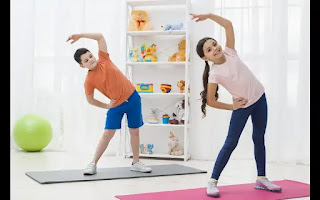Benefits of Kids Fitness Classes for Today’s Kids
Kids can be happy, healthy, and peaceful by staying physically fit. They remain joyful, energetic, and stress-free. A child’s chance of developing a range of diseases as an adult is significantly reduced the earlier they begin engaging in physical activity. So engage your kids in a variety of personal training for kids to make your kids healthy and fit.
Benefits of kids’ fitness classes
Here is the significance of physical education and fitness programs for children.
- Heart Strengthening
When the heart is regularly pushed by physical fitness exercises like workouts, dance, yoga, etc., the heart’s functioning improves. They cause the heart to grow stronger and more effective in response. Blood circulation is aided by it.
- regulates weight
kids’ fitness classes are required for any activity, which aids in the burning of calories that would otherwise result in fat storage. It aids in keeping kids at a healthy weight, preventing obesity and other problems.
- Bones Strengthening
Kids who participate in physical activity are likely to have stronger bones. Boosting bone density, aids in the prevention of osteoporosis, a disorder in which the bones become brittle and weak.
- improves emotional health
After engaging in kids’ fitness classes, children feel relaxed, energized, and tranquil. According to studies, the body produces beta-endorphin, a naturally occurring chemical that is dozens of times more effective than morphine, when you exercise.
- Improved Concentration
Kids who maintain a healthy weight have improved concentration abilities for school and other activities. They perform well because of their sound minds.
- increases posture and balance
The development of coordination, posture, balance, and flexibility are a few other advantages of physical activity for children. Additionally, personal training for kids improves relaxation and sound sleep.
How much exercise is sufficient for children?
60 minutes or over of intense physical activity per day is recommended for children and teenagers (6 to 17 years old) in school-age groups. At least three days a week should be dedicated to bone and muscle strength exercises according to kids’ fitness classes.
Playing actively all day long is recommended for preschoolers. Uncertainty surrounds the precise duration, but 3 hours per day split between light, moderate, and strenuous activity seems like an acceptable goal. These ought to consist of unscheduled active play and organized adult-led physical activity.
Conclusion
Fit youngsters sleep better in addition to benefiting from regular exercise’s health advantages. Personal training for kids helps to perform better in school and is less likely to experience anxiety. Regular exercise makes children more resilient to both physical and emotional difficulties.



Comments
Post a Comment